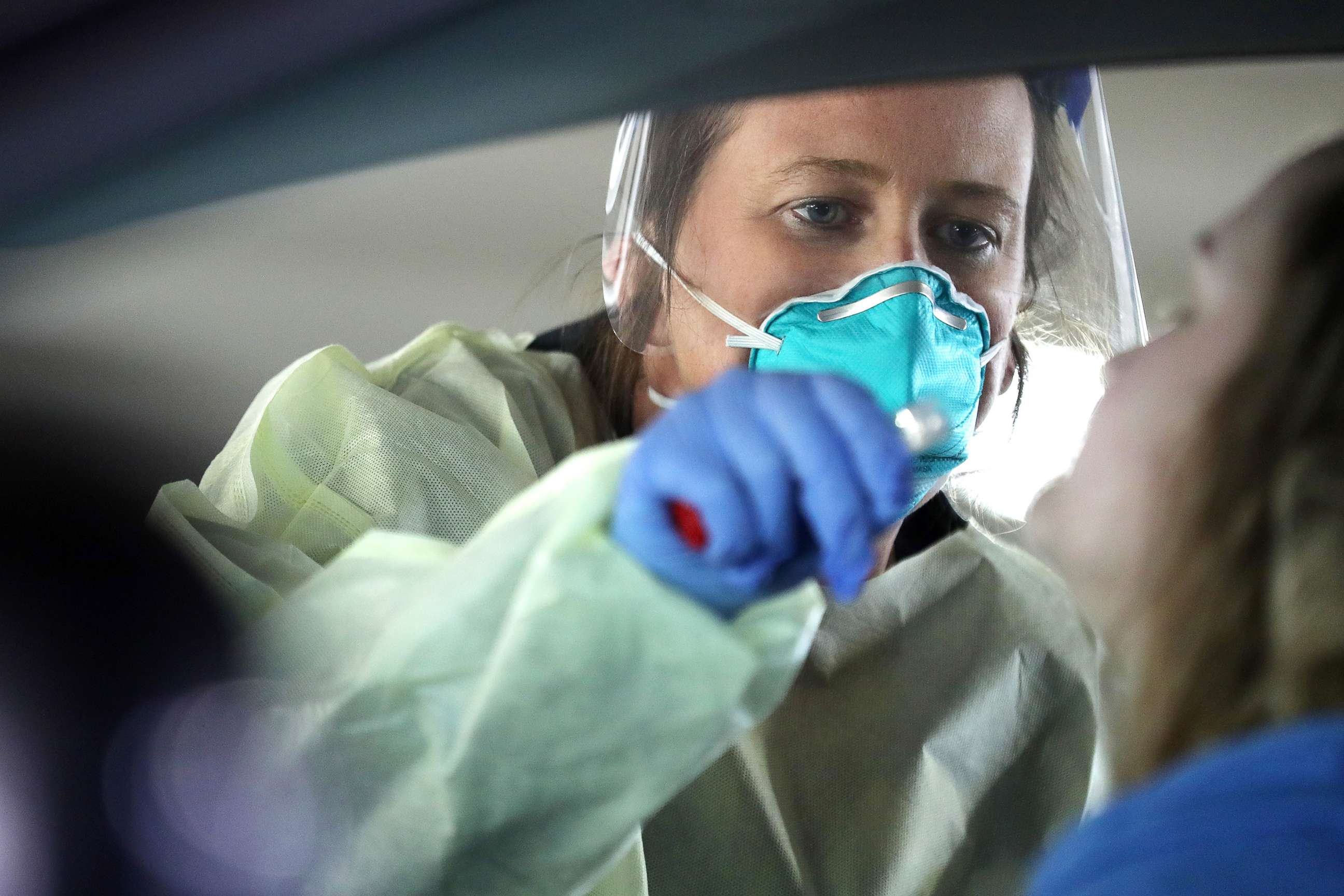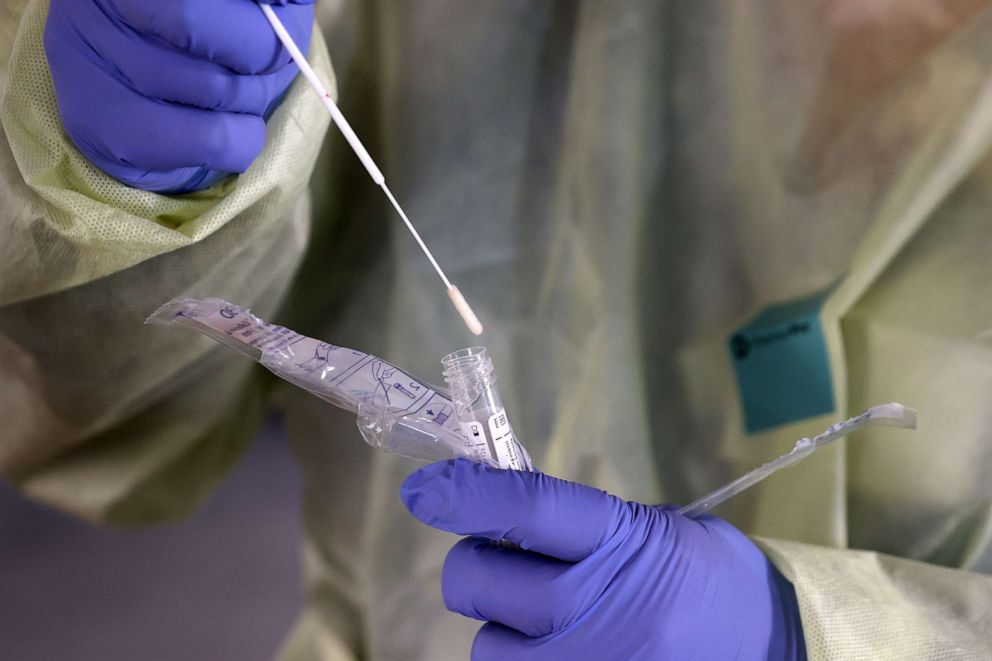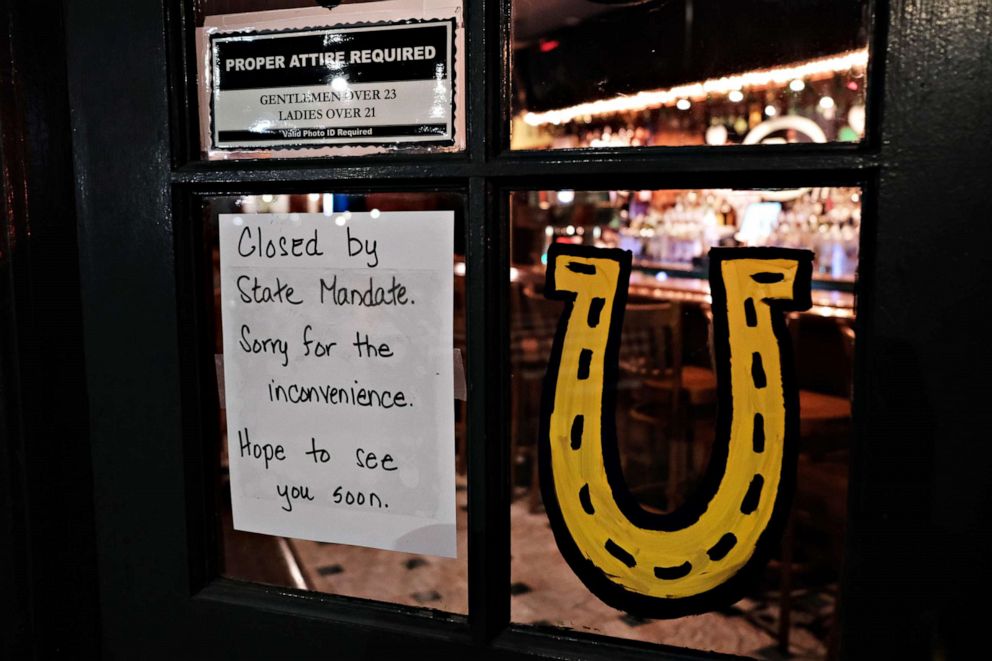Some health officials enforcing court orders against rogue COVID-19 patients
Three states have issued orders to force a COVID-19 patient to stay home.
Medical professionals and public health officials repeatedly advise individuals who are diagnosed with COVID-19, or have been in contact with someone with the disease, to stay inside to prevent spreading the virus to others.
But what happens if an infected person defies their doctor or the government's orders?
In Nelson County, Kentucky, a 53-year-old man left a hospital in Louisville "against medical advice" after testing positive for COVID-19, and went home on March 14, according to a statement by Governor Andy Beshear. The governor said that the Lincoln Trail District Health Department asked the unidentified man to "self-quarantine, but he refused."

The state's Cabinet for Health and Family Services contacted "the local county attorney and county judge-executive to obtain an order to force him to quarantine in his home," said Beshear.
That afternoon, a judge signed an executive order forcing the family to stay inside their house, Nelson County Sheriff Ramon Pineiroa confirmed to ABC News.
An officer will be parked outside of the man's home until the order is lifted.
As of Tuesday evening, Kentucky had one reported COVID-19-related death, 23 active cases, and one recovery.
"States have police power functions to protect the health, safety, and welfare of persons within their borders," according to the Center for Disease Control and Prevention (CDC). "To control the spread of disease within their borders, states have laws to enforce the use of isolation and quarantine."
"These laws can vary from state to state and can be specific or broad ... In most states, breaking a quarantine order is a criminal misdemeanor," according to the CDC.

In Washington state, where the U.S. outbreak began in a nursing home, "public health officials regularly ask people who may have been exposed to a communicable disease to stay at home and avoid contact with other people," a spokeswoman with the state's COVID-19 Response Joint Information Center wrote in an email to ABC News.
As of Tuesday, Washington had 50 COVID-19-related deaths, 855 active cases and one recovery reported.
"While local health officers in Washington have the authority for quarantine or isolation orders, the vast majority of people we ask are willing to follow public health recommendations and quarantine or isolate themselves," the spokeswoman said.
Isolation orders are different than quarantine orders. According to the CDC, "isolation separates sick people with a quarantinable communicable disease from people who are not sick, and quarantine separates and restricts the movement of people who were exposed to a contagious disease to see if they become sick."
In St. Louis, Missouri, earlier this month, County Executive Sam Page said at a press conference that a family misunderstood medical officials' instructions to quarantine the entire family after at least one member was diagnosed with the coronavirus.
The unidentified family member who was diagnosed with COVID-19 was left in quarantine at home on March 7 as the father took one of the children to a school event. The father was later notified that he had COVID-19, Page said.
In this case the courts did not get involved, but Page said that the verbal instructions from health officials have worked for other patients.
As of Tuesday, Missouri had seven confirmed cases of the coronavirus.

In New Hampshire, health officials announced in a press release that they had to issue an "official order of isolation to their [state's] first patient" after the person was directed to self-isolate but instead "attended an invitation-only private event on February 28" and infected the state's second COVID-19 patient.
"When such communicable diseases pose a substantial threat to the health and life of the citizenry, the commissioner shall establish isolation or quarantine for persons who are cases or carriers," according to the state's public health code.
New Hampshire has 17 reported cases.
The governor of California has issued "aggressive statewide directives to slow the spread ... and protect those most vulnerable to disease," said Dr. Sonia Angell, the state's department of public health director and state health officer.
"It’s critical that all Californians listen to their local public health officials, and they should closely follow their direction regarding essential activities and businesses that must be maintained in order to keep our communities safe and protect the most vulnerable," said Angell.
"The level of transmission throughout our state is variable, and local public health officials -- especially those areas with substantial COVID-19 community transmission -- can and should take further actions to meet the conditions in their communities," she added.
No reports of defiant patients have surfaced in California, a spokeswoman said.
As of Tuesday, the state had 573 active coronavirus cases, and six patients had recovered from the virus.
New York state, whose 1,700+ COVID-19 cases are the most of any state, also has the option to enforce mandatory quarantine or isolation, according to a spokeswoman.
"If a person violates an agreement to voluntarily quarantine or isolate themselves, the health department may choose to issue that person a mandatory quarantine or isolation order," the spokeswoman said.
What to know about Coronavirus:
- How it started and how to protect yourself: Coronavirus explained
- What to do if you have symptoms: Coronavirus symptoms
- Tracking the spread in the US and Worldwide: Coronavirus map
Tune into ABC at 1 p.m. ET and ABC News Live at 4 p.m. ET every weekday for special coverage of the novel coronavirus with the full ABC News team, including the latest news, context and analysis.




